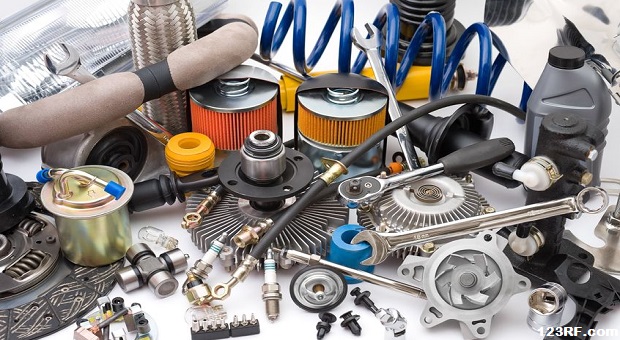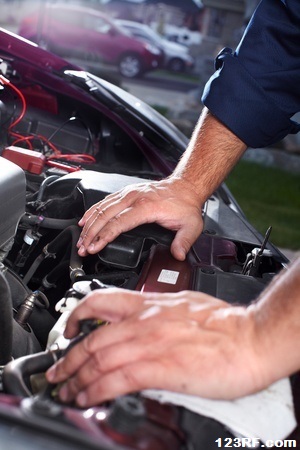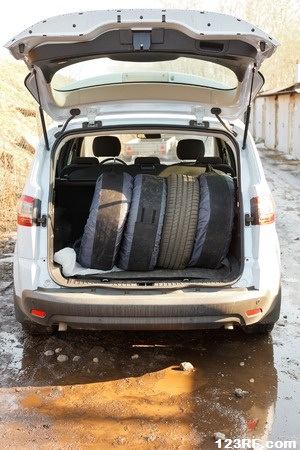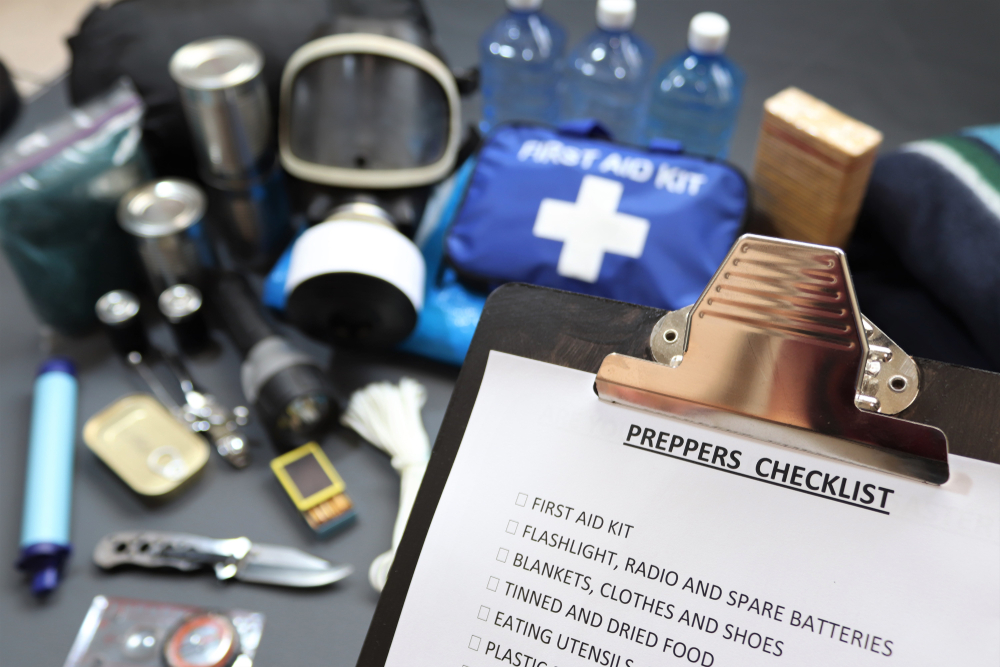Do you currently take your car to a mechanic for routine servicing or repairs? Then you are missing out on an important opportunity to prepare your car for long term survival needs. Going to a mechanic robs you of vital spare parts and experience in a situation where you can’t get help.
If you rarely look under the hood of your car or don’t have a clue what bearings, oil rings, or hydraulic pumps do, then you will need to start with a good grounding in auto repair before delving into working on your own car.
Information: Your Most Critical Need
There are four basic sources of information that you can use to find out everything you need to know about keeping your car running long after parts and services become unavailable.
- Automotive repair courses
Today, many community colleges offer courses that lead to degrees and certifications in auto mechanics. It will take about 2 years to complete the degree plan and all the training required. (Being able to fix cars might be a great skill to barter, don’t you think?)
- Learn on your own
As someone who did it this way, I recommend buying a cheap vehicle that no longer runs to experiment on. Get a book on automotive repair and study it carefully.
Next, take the car apart from bumper to bumper (including disassembling the engine, transmission, and drive train) and put it back together again in working and drivable condition.
This will teach you about each vehicle system, how to recognize broken, worn, or failing components, plus how to fix or replace them.
Plan to spend 2 – 3 years with a commitment of 5 – 6 hours per week under the hood plus an additional 2 – 4 hours per week studying schematics and book learning.
- Work on your own vehicle
Once you have a good understanding of auto repair (and the associated grease, stuck fastener removals, and acquiring physical flexibility, strength, patience) you can start working on your own vehicle.
It is very important to have schematics for every system in the car as well as instructions for repair and replacement. You should get the Chilton’s repair manuals, or the full repair guide from the manufacturer. This is also the perfect time to make some decisions about which parts will be eliminated or bypassed in a crisis situation, as well as make sure you can achieve that goal.
You should also make it a point to learn how to add a water to hydrogen fuel converter to the intake manifold, as well as upgrade the vehicle to run on biofuel.
- Get all information that you need
Some car models have a tendency to go through critical parts while others do not. You can get some of this information via the US Department of Transportation website.
Visit http://www-odi.nhtsa.dot.gov/owners/SearchSafetyIssues and start looking for complaints related to the model vehicle you currently own. If you see a lot of complaints about fuel pumps, alternators, or other high priced items, then you know to store those or put a focus on learning how to refurbish them. Keep in mind that it may take a few years for a complete picture to emerge for newer vehicles.
Here are the most important tools to start with for auto survival needs. As you become more proficient in auto repair, other items may be of interest to you.
Grinder or rotary tool with polishing and cutting bits
- Hand drill with metal working bits
- Phillips and flat head screwdriver bits
- Magnetic and non-magnetic screwdriver handles
- Hex wrench set
- SAE and metric wrench and socket sets
- Monkey wrench
- Metal working files
- Wire cutters
- Needle nose and regular pliers
- X-acto knife and blades
- Metal cutting hand saw
- Rubber mallet
- Hammer
- Torque wrench
- Timing light
- Soldering iron
- Brazing torch
- Welder
- Cinder blocks (for wheel blocking)
- Floor jack
- Plenty of rags
- WD-40 and other lubricants
Common Things You Can Use for Parts
- Metal chains
- Wood (which can be used in conjunction with metal chains to make an emergency tire)
- Paracord rope
- Metal coat hangers/metal wire
- 3-wire electrical wire
- Rubber sheeting
- Copper wire or speaker wire
- Aluminum foil
- Screws and nails of various sizes
- Nuts and bolts of various sizes
- Hex bolts and screws of various sizes
- Metal (including coins) and rubber washers of various sizes
- Electrical tape
- Duct tape
- Tin cans and lids
- Screening/filter cloth for cleaning oil
- Fiberglass body repair goo
- Spray paint
Parts You Should Keep on Hand
Fuses
- Spark plugs
- Oil
- Oil filters
- Oil rings
- Radiator fluid
- Valve and injector sets
- Tires
- Battery acid and material to refurbish internal metal parts
- Windshield wiper pads
- Brake pads
- Brake fluid
- Transmission/steering fluid
- Timing belts
- Air, oil, and gas filters
- Air conditioner kit
- Tire repair patches and kit
- Any item that seems to wear out quickly, requires a special filter, or cannot easily be fixed.
Top 10 Car Prep DO and DON’Ts
1. Never work on your car when you are tired, drunk, drugged, angry, or in a hurry.
2. Do take the time to study schematics and information about each part you will be working on.
3. Don’t use the wrong tools to do the job.
4. Do take time to set up appropriate lighting, wheel blocking, and prepare other safety needs.
5. Don’t be careless when disposing of liquids or other items.
6. Do practice automotive repairs skills and get to know the engine.
7. Don’t smoke, wear loose clothing, or anything else that may catch in moving parts.
8. Do tie your hair back, wear goggles, aprons, and other protective gear.
9. Don’t let the mechanic keep old parts that may be refurbishable.
10. Do keep a record of everything you do.
If you are serious about being able to own and drive a car in the post-crisis world, and even during crisis, it is very important to go back to basics and learn how to maintain a vehicle. It will be to your advantage to practice your skills as often as possible.
No matter what vehicle you decide to work on, it is also important to think about adaptions that will make it easier to repair and operate your vehicle in a post crisis world.
This article has been written by Carmela Tyrell for Survivopedia.



 Grinder or rotary tool with polishing and cutting bits
Grinder or rotary tool with polishing and cutting bits Fuses
Fuses






Dan Plaskett | August 29, 2014
|
If there are 281 million people dead there will be plenty of running cars and parts available. Better to concentrate on survival skills rather than auto mechanics.
mike | August 29, 2014
|
Not for long they wont be. Cars take regular maintanece, even when static. Knowing how to bring a car back from the dead is paramount. Remember diesel fuel will last longer. Gas will only last about a year in fuel tanks, and most of those will be empty any ways in a true emergency.
Jeff | August 29, 2014
|
I agree. that’s why my focus was on learning how to make batterys because even tho a lot of ppl will be gone, if that car sits there for some time, that battery might be dead and gone,
g | September 2, 2014
|
Where is info on making batteries?
carmela tyrrell | August 30, 2014
|
Actually – no…. May cars on the road today will stop running for three reasons:
1. There is no gasoline available – which means you need to start adapting vehicles from now to run on water or biodiesel. Going to a mechanic will cost a fortune, and you will still be left with all the computer junk that eats up energy and causes other problems.
2. The computer junk will fail before the actual mechanisms required to actually accelerate, brake, and turn. So – if you don’t know how to recognize this and bypass that junk or get rid it – scavenging is useless. Plus – if you don’t know how to bleed a brake line, etc- how can you scavenge brake pads, etc?
3. There are laws underway now to add chips into vehicles that will reveal direction of travel, speed, etc. These things exist now – but they are not mandated by the gov. In a time of crisis – do you really want to be trying to bug out in a car that has one of these chips and can stop you from entering roads or going off-road to reach your destination? Don’t forget – one car with this chip in it can stop hundreds on the road from an unseen location.
grintch | September 1, 2014
|
Now if one could locate a Pogue carburetor…………………
carmela tyrrell | September 1, 2014
|
I dearly love all carburetors! We need to go back to them and also get the fuel pumps out of the tanks!
grintch | June 12, 2015
|
” if you don’t know how to bleed a brake line, etc- how can you scavenge brake pads, etc?”
What does scavenging brake pads have to do with bleeding brake lines?
carmela Tyrrell | June 13, 2015
|
Grintch,
My intention with that comment was to try and explain that simply scavenging parts from a similar vehicle and hoping you can just plunk them onto another one (ie. without knowing or having experience with the prcoess) is not enough in a time of crisis. Brake pads (or more accurately the rotors these days) wear out fairly quickly on a car, so scavenging for useful pads and rotors is likely to occur. If people don’t bleed the brake line as part of installing the new pads, their brakes will still fail. In that sense, scavenging for parts without knowing steps like that will result in problems. Hope that makes sense.
grintch | June 13, 2015
|
I have never had to bleed a brake line when installing new pads or rotors, in 50 years.
I don’t understand what you’re saying
carmela Tyrrell | June 13, 2015
|
Grintch,
?! I must say this has my jaw dropping. NEVER bled a brake line after changing brake pads and rotors?!
That’s scary – because when you unhook the brake line, air can get in the tube. So… you let it drip a tiny bit to make sure there are no air bubbles. I’ve always bled brake lines.
grintch | June 13, 2015
|
On GM and Ford US made cars, (I can’t speak for foreign cars) there is no need to disconnect the brake line to replace the rotor or the pads, unless you’re changing the caliper or cylinder. Look it up on Youtube. Surely there’s a “how to” video there someplace.
Have you ever ACTUALLY done rotors or pads?
carmela Tyrrell | June 13, 2015
|
Ahh… I went to look this up – and see that some places say you don’t have to bleed the brake lines if you aren’t actually getting into them. It still seems weird to me as I’ve always bled the lines and viewed it as a quick simple “better safe than sorry” sort of thing.
It’s been a few years – but yes – I have done both pads and rotors; and together with that – I always went through and checked the caliphers while I was at it.
Mike | August 29, 2014
|
290 million dead, yeah there might be a bunch of cars around but if u dont know a muffler bearling from your blinker fluid you dont have a hope in hell of geting or staying moving. Out in the sticks away from populace and all thouse free* cars you will need to understand how to fix your own. The Triangle of mobile
Suvival , move, defend and comunicate.
carmela tyrrell | September 1, 2014
|
Well said – Mike!
Don | August 29, 2014
|
Most modern cars are designed to NOT be repairable by the shade tree mechanic, anymore. They are simply to complex, with computers, electronic components, inaccessible parts unless you own a huge variety of special tools that only do one thing, on one make of car, that cost a lot of money.
If you expect to actually follow up with this, buy an old car, with the most basic, simple mechanical designs,and buy a junk or two of the same year or compatible, to cannibalize parts.
carmela tyrrell | August 30, 2014
|
Don,
In one sense – I do agree with you that modern cars have many unnecessary complexities. However, I haven’t come across much that couldn’t be gotten around and then replaced with something simpler. The computer systems really are vital to remove for ANYONE that plans to use a vehicle for bugging out – that and modifying the intake manifold to accommodate alternative fuels.
Bernard Richardson Jr | August 29, 2014
|
I have always done my own car repairs. It saves tons of money and instills a sense of ownership and pride. I highly recommend everyone be able to at least be able to do the basic repair/maintenance on their own vehicle.
Mikey | August 29, 2014
|
If you already have the skills and tools (and power) to fix things – and not just cars – you are in a great position to BARTER for…what you need. The rest of us will need to barter with you, making the most of our skills and/or stockpiles. Having critical parts for your favorite vehicle may be a worthwhile investment, but devoting years of study to become a mechanic, just so you can do without hiring one, is like studying law just in case you need to defend yourself in court. Hone the skills you already have and prepare yourself to do “that” independently (if you grow vegetables, have a healthy plot and stockpile heirloom seeds, for example) and barter what you have with the Repairman.
Dave | August 29, 2014
|
As a variation on ‘work on your own car’ you can buy a project car and rebuild it or at least repair and tune it up. A ‘compact’ from the ’70’s should be really cheap, may not have fuel injection (making it immune to EMP events) and can be gas or diesel, depending on which you want to learn to repair. Then you can make it your winter-time beater, or do the body-work and paint it and then keep it, sell it, or give it to your kid. That’s my plan. Anyone got a ’76 B-210 for me?
grintch | August 29, 2014
|
I got a good laugh out of reading this article.
What incredible naïvete!
pops hemi | August 29, 2014
|
50 -plus years mechanic [Master] everything from gas-powered 1-lung washing machines to present-day computerized-up-the-yazzoo vehicles from electric/gas to bio-fuels/gas to diesel [ all variants ] and lets throw in jet -engined aircraft as well, ie; B-52,C-141, B-47,B-57, etc., etc., I KNOW ENOUGH about mechaics to KNOW that NOBODY KNOWS -IT-ALL ! However the SIMPLER[in terms of power-source] the MOTIVE POWER [whatever it is, the better for the would-be survivor /mechanic] 1-4 cyls better than V-10 / 8/ 6 etc, less is MORE subscribe to CENTURIES OLD WISDOM: K-I-S-S, [keep-it-simple-stupid ! ] Learn how a system IS SUPPOSED TO WORK ! Then you can determine what’s NOT working and WHY, [Then if it is POSSIBLE w/stuff available to you, such as Baling Wire[Time-honored material,ANY kind of wire usually works] ropes,rags,rubber,plastic wood,weeds, [USE YOUR IMAGINATION! ] whatever is at hand can be used, but may not be a long-lasting fix,.Bottom Line: In Survival Mode ,Go for the Least Impaired. If you are stuck w/ only 1 Vehicle check it out, if it needs more than you can do/ or get parts pieces to fix it , CONSIDER: Barter parts off it to someone who needs them for whatever YOU need, or Make another use for it [2-wheel cart / trailer ] or if eng runs, no trans, power a generator w/it or a Saw ,or practically anything, Also consider teaming up with another person to make 1 Good Unit out of 2 Broken ones . I CANNOT OVER EMPHASIZE : Use Your Imagination ! It COULD KEEP YOU ALIVE ! ! Or, At Least ,Show you what is -and-isn’t possible in DESPERATE_TIMES-AND-SITUATIONS ! !
carmela tyrrell | September 1, 2014
|
Pops – I definitely agree with you on going back to basics; and also others here that brought up using older vehicles from the 70’s as project cars. That is how I did it, and feel the two years I spent rebuilding the car from bumper to bumper were well worth it. This isn’t just about being able to save money on mechanic bills or being able to handle an emergency. It is also about the ability to diagnose and repair basic machines at the most bare level – ie. how to clean parts, how to remove stuck fasteners, how to be disciplined enough to dissassemble and reassemble. Those things will never come out of a book, and they ARE all skills needed in every aspect of survival.
pops hemi | September 1, 2014
|
Carmella,Keep pushing the personal learning aspect, if nothing else you will have tried your hand at /learned a skill/ found hands-on-abilities you never knew you had ! What you learn by doing USUALLY can be carried – over to something else valid in the Knowledge-is-survival categories. Example: Knowing how a simple 12 volt automotive circuit works can help you set-up/understand BASIC electricity[12-volt,110-volt, A/C- D/C] Remember I said BASIC [kiss} Like setting groups of batteries for a longer- lasting suppl of 12 volts OR a grouping for 24-36-48 volts all possible, all simple remember once you UNDERSTAND how something works, you can go a L_O_O_O_ONG way towards SURVIVAL and BETTERING yourcurrent position/condition! I agree that you had best be willing AND able to barter in a survival situation, remember, this WON’T BE living ” OFF THE GRID ” it will be “SURVIVING”, For how long?? That will be up to “YOU” ! Thanks J.B.
Charles H Burk | August 29, 2014
|
I agree with those that call this absurd! But would like to add one strong warning.
NEVER use concrete blocks to hold the vehicle “up” while you work underneath it!
The failure mode of such concrete blocks is rupture/instantaneous collapse..and it can drop a car in a split second! Use metal jack stands to hold the vehicle up. They are not all that expensive an available at most auto stores. Be safe, not sorry!
Retired Engineer, whose first job when I was 15 was in a garage!! Loved it!!!
carmela tyrrell | September 1, 2014
|
Charles,
I’m glad you brought up the point about cinder blocks – so I will clarify a few things here.
First – I never recommend using just one form of prop under a vehicle (even the huge hydraulic ones in the mechanic shops can fail). If I use a ramp or jack; I also add cinder blocks as a backup ONLY.
Second – with regard to safety – I also think to point out that using tire jacks is also incredibly dangerous – never let any part of your body anywhere near under the vehicle even when changing a tire because it will be crushed before you can figure out what happened.
grintch | September 1, 2014
|
http://www.ehow.com/facts_6190293_difference-cinder-block-concrete-block_.html
NEVER use CINDER blocks!!!!!!!!!!!!!!!!!!!!!!!!!!!!!!!!!!!!!!!!
Roy | August 29, 2014
|
As an ASE certified master mechanic I just have to say this article is beyond absurd. To many other skills are more important. or perhaps I should study to become a doctor, just in case.
carmela tyrrell | August 30, 2014
|
I agree – there are many important skills – however leaving out at least the basics of auto repair will make it difficult, if not impossible to survive in the post-crisis world. What harm is there in learning how to change your own tires, oil, bleed brake lines, rebuild a radiator, etc? You already know this for yourself, so why be so ready to deny others the chance to learn?
As I said in my article – I did not go to school – but I did put in 2 years of learning and direct experience with rebuilding a car from bumper to bumper. That experience stood me well many times when I was commuting across state lines and in all weather over 200 miles a day for over a decade.
Rick 173 | August 30, 2014
|
I can’t say I’m real impressed with some of the comments here. The woman wrote an article to the best extent of her knowledge on the topic. Even our Certified mechanic could have been kind enough to point out if your replacing rings you should be looking at the bearings as well. He just chose to tell us all our vehicles will thwart the efforts of the best of underlings. Then the obvious advice, of course we’ll all be wandering the woods in our leathers and cross-bows so hell just jump any dead zombies car and take off. I kind of like the other few too. Laughable, naivete, come on guys. If you know enough to leave those kind of remarks maybe you know enough to publish something worthwhile to share your knowledge instead of these remarks. And in case your wondering, I’m not her boyfriend, husband, father or anyone else who knows her.
carmela tyrrell | August 30, 2014
|
Thanks Rick – I actually got a laugh out of the other comments because my emergency auto kit has been in the trunk of my vehicles since I got my license to drive over 20 years ago. It has stood me well on everything from hanging up a dragging exhaust pipe to jury rigging the clutch cable (on one of my cars with a manual tranny). In a crisis – I won’t be wondering if I can safely and effectively take care of my vehicle or do what it takes to scavenge parts – because I already know from experience.
With regard to wheel bearings – hmm… they are stubborn buggers that I don’t really recommend rebuilding without all new balls or at least a good knowledge of which ones will work together. That being said – if you are going to scavenge a working unit – it is still important to know how to do that!
grintch | August 30, 2014
|
Don’t forget the Plastigage, one package each of red and green.
grintch | August 31, 2014
|
And at least one differential pinion. You never know when you’ll need one.
Mike | August 31, 2014
|
In a post apocolyptical society, the idea of rebuilding a motor is absurd. Any time you build a motor it takes multiple shops thag have power to get the job done. Even if the plastigauge tells you your screwed, ita not like u can go on the web and have fed ex ship u a new set of bearings. Basic tools and basic skills. I dont care how many sensors and computers they put on a car. Internal combustion Still works the same.
Mike Robinson | August 30, 2014
|
This is all well and good. If we are hit with an EMP, however, there is a good chance that any late model vehicle will be crippled since its electronics will be fried. Wouldn’t it make more sense to get an old (say 1977 or so) truck that has no electronics in the engine, fix it up to run reliably, and then stock up on the parts you will need to keep it running. If you cannot convert to alternative fuel, would you be able to keep gasoline stored for an extended period in sealed containers with lots of fuel stabilizer?
carmela tyrrell | September 1, 2014
|
Mike- if you are going to restore an old vehicle, or take all the computer junk off a newer one – might just as well modify for alternative fuels – or at least that is my thinking. I am still considering which vehicle I will use for my own project. I rebuilt a vehicle years ago; but no longer have it; and am considering tinkering again as a winter or spring project.
g | August 30, 2014
|
Don’t forget spare pinions for your differential
grintch | August 31, 2014
|
Is there a good book on interchangeability, such as Hollander’s still availabe?
THAT would be worth having.
Mike | August 31, 2014
|
The best source is to get involved in a fourm that is make model specific, naxja.org is a good one for the classic jeep chrokee
WILLIEPAUL | August 31, 2014
|
I like your article a lot.It is what everyone who whats to know to be able to keep driving in case SHTF.Some guys are right,about the new cars are going to be almost impossible to convert,I would like to recommit something.Go out and buy that old car that you had when you first started driving,you know the one that had a carb and points,much easier to convert.In my case a 1967 Chevy truck.I have one now even though it’s fuel injected,but no problem going back to carb.
Pingback:How To Set Up The “Emergency Ratio” for Your Car | Rowan Oath Keepers | September 10, 2014
|
Great Grey | October 12, 2014
|
When you have to remove wheel from a car, break the lug nuts loose before you jack it up. Also the put tire/wheel you are not working with under the car to sever as an emergency block when you have no other supports.
Pingback:8 Winter Preparedness Tips For Your Motorcycle | The Prepper Dome | December 21, 2014
|
Brian Lee | June 11, 2015
|
If you happen to own a car than there is value in looking under the bonnet of your car and just try and remember the symmetry of the parts and the way they are arranged. The thing is most mechanics will try and take the little parts from your car if they can. It will be better for you to take a course in which you can learn to perform a car service on your own.
cash for car caboolture | September 4, 2018
|
Nice blog ! Thanks for sharing this informative content.
Pingback:How To Set Up The “Emergency Ratio” for Your Car - US Crisis PreppersUS Crisis Preppers | June 16, 2015
|
Pingback:How To Survive When Jammed In Traffic | Survival skills, survival guns, survival guide | September 11, 2015
|
Pingback:How To Survive When Jammed In Trafficdisasterdefense.us | disasterdefense.us | September 12, 2015
|
Brisbane Cash For Car | September 7, 2018
|
It saves tons of money and instills a sense of ownership and pride. I highly recommend everyone be able to at least be able to do the basic repair/maintenance on their own vehicle.
Car Wreckers Brisbane | September 25, 2018
|
Instant Car Removal Brisbane has been serving high-quality cash for car services for a decade in Brisbane Region. What makes Instant Car Removal unique from every other cash for cars business is that they offer an ‘at your doorstep’ service.
4wd wreckers brisbane | December 19, 2018
|
This is the nice post which I was waiting for such an article and I have gained some useful information.
cash for cars carseldine | December 27, 2018
|
Some really useful content here. I’ve been looking for something like this to help with a research piece I’ve been working on.
top cash for cars | January 5, 2019
|
I’m in love with this website. I have visited this site so frequently.I discovered this website on the internet. I have gotten a good stuff of information. Many thanks. keep updating me.
Nissan wreckers brisbane | January 8, 2019
|
Excellent post. I will certainly come back to read more of the articles about food. We love to try new receipts.
Alex | January 8, 2019
|
Thank you for your feedback.
Alex, from Survivopedia 🙂
cash for cars brisbane | February 9, 2019
|
You shared what a good blog. God Bless you, man. Have a nice day.
Want more to read. Thanks
cash for cars brisbane | February 9, 2019
|
Very useful information. thanks for this great post.
I was seeking this certain information for a long time.
Thank you and best of luck.
cash for unwanted cars | February 11, 2019
|
I must say this post should be viral on the net.Indeed it is a nice post.
good work.Keep it up friend..
Second Hand Tyre Dealers | April 19, 2019
|
I have learned several just right stuff here. Certainly, price bookmarking for revisiting. I surprise how much effort you place to create this sort of magnificent informative website.
cash for scrap cars beenleigh | May 14, 2019
|
I just got the best blog ever because it motivates me very much regarding these kinds of projects that may be necessary to make ourselves busy. So I appraise the author of this blog for these unusual ideas hidden in it.
cars for cash ipswich | May 28, 2019
|
You have done a brilliant job making sure that people understand where you are coming from. And let me tell you, I get it. Please post more updates to cure.
Brisbane | June 3, 2019
|
Your post is just outstanding! thanks for such a post, it is really going great. Keep posting more about cash for cars
Brisbane | June 17, 2019
|
i am glad to see the post with amazing content and helpful ideas.
Airport Chauffeur | June 26, 2019
|
Excellent site indeed.
While others focus on the quantity but it is the content that makes the site important for your visitors.
Airport Chauffeur | June 26, 2019
|
I have learned several just right stuff here. Certainly, price bookmarking for revisiting. I surprise how much effort you place to create this sort of magnificent informative website.
Airport Chauffeur | June 26, 2019
|
Thanks a bunch for sharing this with all folks you really know what you are speaking about! Bookmarked. Kindly also discuss with my web site =). We can have a hyperlink alternate agreement among us!
Customized deliveries | July 6, 2019
|
Excellent post. I will certainly come back to read more of the articles about food. We love to try new receipts.
Hamilton | August 30, 2019
|
You are making it entertaining and you still care w for to keep it sensible. I can not wait to learn far more from you. This is really a wonderful web site.
car wreckers hamilton | August 30, 2019
|
I can not wait to learn far more from you. This is really a wonderful web site.
cash for scrap cars toowoomba | December 7, 2019
|
The top quality info you present to your visitors.
Back again frequently to check up on new posts.
cash for scrap cars ipswich | December 24, 2019
|
Vcery knowledgeable. I do take pleasure in writing but it just seems like the first 10 to 15 minutes are usually lost simply just trying to figure out how to begin…
tyres moorooka | December 24, 2019
|
Am seeing your full post. Awesome writing . It’s really helpful.
Thank you so much for giving the important information….
brisbane247 | September 14, 2020
|
I appreciate your efforts, Thank you a ton to share!! 🙂
Car Wreckers Ipswich | October 28, 2021
|
If you have a scrap car in your hand, Scrap Car Removal Services in Brisbane can look at it in one of two ways. So you can either look at it as a total loss. Disposal Car Removal knows that better than anyone, which is why we are famous for our impressive cash for cars Ipswich rates no matter what condition a car, Ute, van, SUV, 4×4 or truck.
Sydwreck Car Wrecker | March 16, 2022
|
Thanks for this awesome article in your blog. This post is wonderfully written. I have shared some other topics for you about How Much Do You Get For Scrapping A Car In Sydney? For many car owners, one of the most pressing problems is selling a used car. To answer your question, we will talk about scrap cars in more detail.